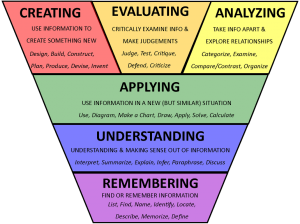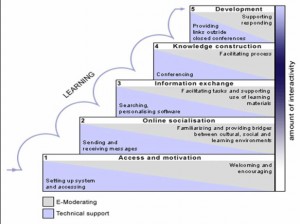Raising your game
As we get to a half way point through the marked topics, we start getting questions from students looking to reach up into the next mark bracket.
The blogs are coming along nicely, there are links to other social media profiles, links to helpful resources are shared on twitter, posts are written and commented on but something is still lacking.
If this is the case, my question would be: do you seem to be mainly politely reporting on what you’ve read and things others said that you liked?
One way to step up would be to be constructively critical. What do YOU really think? Does everything you’ve read make sense or do you disagree with some of it? Why? How do you think general recommendations and readings would apply in your own case? What would you do differently and why?
Can your degree help you in approaching the next topic?
For every sentence you’re about to write, ask why.
Yes, keep linking the blog posts you liked and comments you’ve made but don’t explain what they said, use it as a starting point to talk about why they resonated with you or why you disagreed with what was said.
Develop your own argument for or against it, briefly.
We’re really hoping you’ll develop your own critical voice.
Don’t forget, at the end of each topic, apart from the general feedback post, we also leave you individual feedback in the google document we shared with you at the beginning of the course, please have a look and read any notes and ask questions by leaving a comment inside the document.
If this diagram makes sense, we want you to be in the top layer; creating, evaluating and analysing.

The image comes from a blog post advising teachers how to write questions to get students through each category of the Bloom’s Taxonomy. It breaks down nicely what is expected from students in each layer.
We hope to see you on levels 4 ,5 and 6.
So much for writing, exploring topics and demonstrating your learning.
When it comes to developing your learning networks, Living and Working on the Web module is underpinned by the Five Stage Model for e-learning or online learning.

Again, by the end of the module, we hope you will be firmly in the final stage.
Hope this helps.
